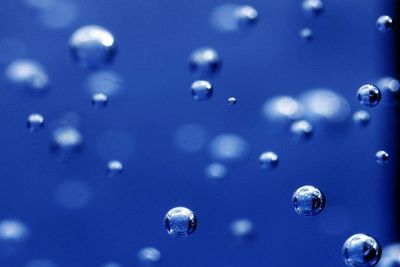tapping in
Rice University researchers pioneer climatetech breakthroughs in clean water nanotechnology

Decades of research have culminated in the creation of the Water Technologies Entrepreneurship and Research (WaTER) Institute at Rice University. Photo via Pexels
Researchers at Rice University are making cleaner water through the use of nanotech.
Decades of research have culminated in the creation of the Water Technologies Entrepreneurship and Research (WaTER) Institute launched in January 2024 and its new Rice PFAS Alternatives and Remediation Center (R-PARC).
“Access to safe drinking water is a major limiting factor to human capacity, and providing access to clean water has the potential to save more lives than doctors,” Rice’s George R. Brown Professor of Civil and Environmental Engineering Pedro Alvarez says in a news release.
The WaTER Institute has made advancements in clean water technology research and applications established during a 10-year period of Nanotechnology Enabled Water Treatment (NEWT), which was funded by the National Science Foundation. R-PARC will use the institutional investments, which include an array of PFAS-dedicated advanced analytical equipment.
Alvarez currently serves as director of NEWT and the WaTER Institute. He’s joined by researchers that include Michael Wong, Rice’s Tina and Sunit Patel Professor in Molecular Nanotechnology, chair and professor of chemical and biomolecular engineering and leader of the WaTER Institute’s public health research thrust, and James Tour, Rice’s T.T. and W.F. Chao Professor of Chemistry and professor of materials science and nanoengineering.
“We are the leaders in water technologies using nano,” adds Wong. “Things that we’ve discovered within the NEWT Center, we’ve already started to realize will be great for real-world applications.”
The NEWT center plans to equip over 200 students to address water safety issues, and assist/launch startups.
“Across the world, we’re seeing more serious contamination by emerging chemical and biological pollutants, and climate change is exacerbating freshwater scarcity with more frequent droughts and uncertainty about water resources,” Alvarez said in a news release. “The Rice WaTER Institute is growing research and alliances in the water domain that were built by our NEWT Center.”
———
This article originally ran on InnovationMap.